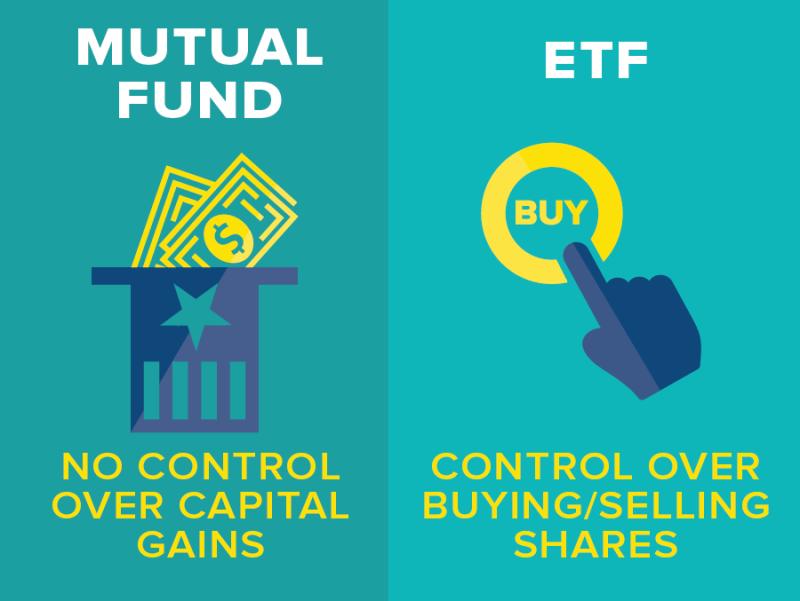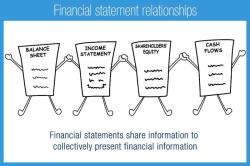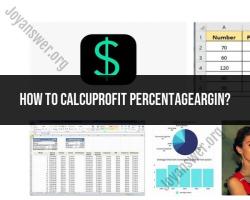Should you sell mutual funds to buy ETFs?
Deciding whether to sell mutual funds to invest in exchange-traded funds (ETFs) depends on your specific financial goals, investment strategy, and the characteristics of the funds in question. Here are some factors to consider:
Costs and Fees:
- Expense Ratios: ETFs typically have lower expense ratios compared to many mutual funds. If cost efficiency is a priority for you, it might make sense to switch to ETFs.
- Transaction Costs: Consider any transaction fees associated with buying and selling funds. Some brokers may offer commission-free trades for certain ETFs, making them more cost-effective for frequent trading.
Flexibility:
- Intraday Trading: ETFs can be traded throughout the trading day like stocks, while mutual funds are priced at the end of the day. If you value the ability to trade intraday, ETFs may be more suitable.
- Tax Efficiency: ETFs are generally more tax-efficient than mutual funds. ETFs typically have in-kind creation and redemption processes that can minimize capital gains distributions, potentially resulting in lower tax implications.
Diversification:
- Fund Selection: Consider the specific funds you hold and whether there are comparable ETFs that align better with your investment objectives. Ensure that the ETFs you are considering provide the diversification and exposure you seek.
Investment Goals:
- Long-Term vs. Short-Term: If you have a long-term investment horizon, transaction costs and short-term market fluctuations may be less of a concern. However, if you're a short-term trader, these factors could be more significant.
Management Style:
- Active vs. Passive: Both mutual funds and ETFs can be actively or passively managed. If you prefer index investing, ETFs often have lower expense ratios for passive strategies. If you prefer active management, there are actively managed ETFs and mutual funds.
Dividend Reinvestment:
- Dividend Options: Some investors prefer to reinvest dividends automatically. Check whether the ETFs you are considering offer a dividend reinvestment program (DRIP), as not all ETFs do.
Brokerage Account:
- Account Type: Consider the type of brokerage account you have. Some accounts may be better suited for trading ETFs, while others may have no-transaction-fee mutual funds.
Market Conditions:
- Liquidity: Ensure that the ETFs you are considering have sufficient liquidity to handle your intended investment size. Illiquid ETFs can have wider bid-ask spreads.
It's important to note that there is no one-size-fits-all answer, and individual circumstances vary. Before making any decisions, it's advisable to consult with a financial advisor who can assess your specific situation and provide personalized advice based on your financial goals and risk tolerance. Additionally, be mindful of potential tax implications associated with selling mutual funds, as this could trigger capital gains taxes.
Is selling mutual funds to buy ETFs advisable?
Whether or not it is advisable to sell mutual funds to buy ETFs depends on your individual investment goals, risk tolerance, and financial situation. However, there are some general factors to consider that may make ETFs a more attractive option for some investors.
ETFs typically have lower expense ratios than mutual funds. This means that a smaller percentage of your investment returns will be eaten up by fees.ETFs are more tax-efficient than mutual funds. This is because ETFs are not required to distribute capital gains to shareholders each year, which can trigger taxable events.ETFs trade on an exchange like stocks, so they can be bought and sold more easily than mutual funds. This can be a benefit for investors who want to be able to actively manage their investments.
What factors should be considered when switching from mutual funds to ETFs?
Here are some factors to consider when deciding whether or not to switch from mutual funds to ETFs:
Your investment goals: What are you hoping to achieve with your investments? If you are looking for long-term growth, ETFs may be a good option. If you are looking for more short-term gains, you may want to consider mutual funds that are actively managed.Your risk tolerance: How much risk are you comfortable taking with your investments? ETFs are generally considered to be less risky than mutual funds, but they are still subject to market fluctuations.Your financial situation: How much money do you have to invest? ETFs typically have lower minimum investment requirements than mutual funds.Your tax situation: If you are concerned about taxes, you may want to consider ETFs, which are generally more tax-efficient than mutual funds.
Are there benefits or drawbacks to selling mutual funds in favor of ETFs?
Benefits of selling mutual funds to buy ETFs:
- Lower expense ratios
- More tax efficiency
- Easier to buy and sell
- Wider range of investment options
Drawbacks of selling mutual funds to buy ETFs:
- May not be as suitable for short-term investors
- May not be as actively managed as some mutual funds
- May have higher bid-ask spreads
Overall, ETFs can be a good option for investors who are looking for a low-cost, tax-efficient, and easy-to-manage investment. However, it is important to consider your individual investment goals, risk tolerance, and financial situation before making a decision.













